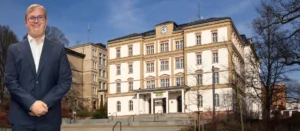Why is MS in Canada popular?
Have you considered joining an MS course as a form of your post-graduation?
Do you lack the basic information you need for choosing your Masters of Science course?
Below is a detailed account of MS in Canada to help you plan your higher education in the Great White North:
The ‘Master of Science’ or ‘MS’ degrees are some of the most sought-after postgraduate degree programs. These prestigious MS degrees are offered by many prominent academic institutes across the globe.
Owing to the rapid innovation in the STEM fields, the popularity of MS degrees has risen significantly over the past few years. Graduates like you prefer these MS degrees due to their reputation and value within the global employment sector.
Developed countries like Canada require highly trained individuals like you, often as
MS graduates, within their technological ecosystem, for conducting research and innovation. You can build a successful and lucrative career in the STEM sectors by obtaining your MS in Canada.
As the most educated country globally, over 56% of Canadian adults have obtained some form of higher education. Canada has also established itself as a suitable destination of higher education for international students and STEM graduate applicants.
You can enroll into some of the top-ranking global institutes for your MS, as Canadian colleges and universities are known to uphold their high quality of graduate education.
Their high literacy rate, technological prowess, and conducive socio-academic environment for research make the Canadian education system effective and rewarding for the postgraduate/Masters’ level of academia.
If you refer to this study by experts, 22.4% of Canadian Masters degree holders were affiliated with the STEM branches. The MS degrees from these branches include Physics, Chemistry, Biology, Mathematics, Computer and Information Sciences, and Applied Sciences of Engineering and Technology.
Canadian MS degrees are recognised worldwide, as Canada stands as the preferred country for MS by international students, especially Indian aspirants like you. Canadian universities encourage you to engage in cross-disciplinary studies and incorporate the usage of cutting-edge technologies and media.
Many Canadian universities are government-funded, which helps raise the bar for its quality of higher education. These public-funded MS degree programs offer hands-on experience, reliable theoretical and practical knowledge, and bright career prospects.
This funding can reduce the tuition fees incurred by the applicants like you, and it also enables institutes to fund their R&D projects. This can help to reduce the total cost of pursuing your MS in Canada.
Canada has a multicultural social environment that prioritises inclusion, making it one of the most preferred international students’ choices for obtaining MS degrees. If you were to secure admission to a Canadian institute, you would find yourself in a helpful, secular, empathetic and sensitive crowd within your peers.
Hence, as an Indian graduate, you can obtain a more affordable education, a welcoming social environment, and rewarding career opportunities.
What are the Popular Majors in MS?
As a student, undergraduate or employee, do you seek further education in Canada?
Do you plan on obtaining an MS from a Canadian university?
Does the thought of receiving higher education from a high-ranking Canadian institution seem exciting to you?
If yes, then the following are some of the popular MS programs in Canada for you:
- MS in Petroleum and/or Chemical Engineering
If you wish to enrol in an MS course in Petro/Chemical engineering, the career prospects are highly promising. Due to the rising energy demand and the depleting nature of fossil fuels, an MS in Petroleum or Chemical engineering is a highly rewarding masters’ program in Canada. Renewable energy, oil and gas, pharmaceuticals, etc., would be some of your primary employers for MS in Chemical/Petrochemical Engineering.
If you were to complete your MS in this field, you would be capable of earning an estimated CAD 105,000 yearly salary. McGill University’s 1st-year tuition fees for the MS program were around CAD 13000 for international students.
- MS in Pharmacology
If you are a pharmacology graduate, i.e. a B.Pharm degree holder, Canada is a rewarding educational destination. As the Government of Canada has projected a shortage of pharmacists in their country for the next decade, your job prospects are secured. Thus, you can benefit from obtaining an MS in Pharmacology, as it will be an in-demand graduate program for undergraduates from the Pharmacy sector.
Upon completion of your course, you need to clear the Pharmacy Examination Board of Canada’s examination and become registered with your preferred college.
Obtaining an MS in Pharmacology can be lucrative for undergraduate pharmacists, as you would receive an average salary of CAD 102,400.
If you enrol at the MS program for Pharmacology at McGill University, your fees would be CAD 20000 per year.
- MS in Software Engineering
Are you an IT/CE graduate from the engineering domain? MS degrees in Software Engineering, Computer Engineering and their associated fields are booming in developed countries like Canada. The country needs software engineers like you due to their necessity for most technological advances and innovation. Your average salaries would range from CAD 90000-150000, after your MS degree.
If you enrol in the MScAC course (Master of Science in Applied Computing) from the University of Toronto, your tuition fees would be around CAD 61,000.
- MS in Mathematics and Statistics
Do you hold a bachelor’s degree in Mathematics and Statistics? As many as 112,440 people who held an educational background in Mathematics and Statistics were employed in 2016. From applications in computing, healthcare, manufacturing, pedagogy, policymaking, and much more, an MS in Canada for Mathematics and Statistics would benefit you in multiple ways.
Your tuition fees for an MSC in Mathematics from UBC (University of British Columbia) would be approximately CAD 9000 per year.
For your MS in Mathematics from a Canadian university, your average salary could be estimated at CAD 68000, making it a rewarding occupation.
To learn more about the universities in Canada, visit Universities of Canada – KCR Consultants.
What is the Difference Between MS in Canada and MS in Other Countries?
What separates Canada as a destination for higher education from other countries?
Why is Canada the perfect choice for selecting the country for your Master’s course?
Why are MS degrees from Canada’s colleges recognised globally for their superior educational and academic standards?
An MS in Canada differs from the MS courses from other countries by multiple aspects that ensure you would receive a better quality of education. Some of these aspects are:
- Affordability: Your Canadian MS degree will be a lot more frugal than most other MS degrees due to the public schools and universities. Your total tuition fees will be lesser, and Canadian universities also host tuition waiver programs, scholarships, studentships, and funded co-ops to further reduce your tuition costs.
- Quality: You can trust the world-renowned quality of Canadian education, as MS degree holders from these universities secure some of the best job opportunities. Your MS degree will hold international acknowledgement and acceptance, as you would be trained well in your field and possess multi-disciplinary knowledge and expertise.
- Social Environment: You will experience a wonderful environment, as Canada has a welcoming and inclusive society of immigrants, natives and multicultural students. International students like you prefer MS degrees in Canada, for the accommodating and helpful nature of its people, across its institutions.
- Employment: You would receive fulfilling employment opportunities due to technological supremacy, innovation-based research, fair trade markets, and the presence of some of the world’s largest corporations. An MS in Canada will benefit you in many ways from an employment perspective.
You can join numerous companies from the public and private sectors that offer employment opportunities after completing your MS courses. You would witness that jobs are readily available, and better working conditions would enhance your quality of life and job satisfaction.
- Immigration and PR: International applicants prefer to avail their MS in Canada for their lenient criterion for Permanent Residency within Canada. You can qualify for your PR card in Canada after you complete the duration of your PGWP.
The conditions set forth by the ICCRC are relatively easier to fulfil compared to the immigration laws of other countries. Thus, you could meet your eligibility criteria rather easily, providing you with the assurance of receiving your PR card after your MS degree.
Is it Very Expensive to Pursue MS in Canada?
Do you wish to obtain your MS without spending a fortune?
Will an MS in Canada burn a hole in your pocket?
Is the cost of pursuing an MS in Canada too high for international applicants?
Most Canadian MS degrees are frugal and inexpensive, making them a perfect choice for Indian and International applicants.
You would be relieved to know that it is not expensive at all to pursue MS at a Canadian institute, especially at a Canadian public institute.
The average cost of a Graduate course (MS) tuition fees for international students is estimated to be around CAD 15000-30000. Converting this to INR, the MS in Canada could cost you around 9 Lakh to 20 Lakh as an Indian applicant.
These tuition fees are subject to ITA programs, tuition waivers, internal funding rounds, and co-ops that reduce the total incurred tuition fees.
The cost of living in Canada has been estimated at CAD 15000 annually.
If you want to estimate the total cost of your MS program, this breakdown of monthly expenditures mentions the involving factors:
- A student’s dorm room has an average monthly rent of CAD 500.
- Transportation – Monthly travel pass costs CAD 150.
- Food, insurance and other expenses – CAD 400-500.
Thus, the total cost of pursuing your MS in Canada would be approximately 40-50 Lakh INR. The specific cost of your MS would vary depending on your university, the tuition fees of your course, the city, the funding you receive, and a few other factors.
You can seek part-time employment during your MS course at a Canadian University to reduce your financial burden. The laws and guidelines for simultaneous tuition/employment are less strict as compared to US universities.
You can also apply for some of the numerous scholarships, industry-driven MS programs, funded industry exposure drives, and the Student Direct Stream (SDS) program for Indian students. This will make your MS degree in Canada more affordable and inexpensive and provide you with better academic and industrial exposure opportunities.
To plan your MS expenses in Canada, book an appointment with KCR – The Most Premium Study Abroad Consultants in India.
Who will qualify to study MS in Canada?
What factors decide if you qualify for an MS at a Canadian institute?
Are the requirements to enrol in an MS in Canada very rigorous and academically intensive?
Do Indian engineers qualify for studying MS in Canada? What entrance exams are
To qualify for studying MS in Canada, you need to fulfil the following eligibility criteria:
- You must have completed at least 16 years of education to apply for an MS in Canada. For Indian applicants like you, this could imply a 10+2+4 format of education, with a 4-year undergraduate program after the 12th grade. Or a 10+3+3, where a diploma holder has obtained their undergraduate degree.
- If you have undergone a 3-year undergraduate degree, you might need to obtain postgraduate certification of 1 year or a similar course to fulfil the criteria.
- Your academic scores need to be higher than 3 on a scale of 4. It corresponds to a minimum score of 7 GPA, or 70% for your undergraduate degree. If you are applying for a prestigious and high-ranking institute, you require better academic scores, such as 8+ pointer/GPA and 80% grades.
- You also need to clear an English proficiency test such as the IELTS and/or TOEFL. You would require a 90+ score in TOEFL and a 6.5+ score in IELTS to apply for an MS in Canada.
- Some universities also accept GRE/GMAT scores to evaluate your aptitude for higher education. For business schools and their MS courses, a work experience of 1-3 years is also required in a related field.
- Your final year grades, internships, work experience, technical knowledge, and extra-curricular activities are also checked on a non-mandatory basis.
If you can meet the above eligibility criteria, you can qualify to obtain the Master of Science (MS) degree from a Canadian university. Other than the requirements mentioned above, a university might also have its own set of conditions, cut-offs, and preliminaries.
To receive professional guidance for planning your MS in Canada, check the best consultation services for Indian applicants.
Can a person work while doing MS in Canada?
Do Canadian MS courses allow employment during education?
Can international students work at a job while pursuing their MS degree in Canada?
Yes. You may be eligible for working on a job while pursuing your MS in Canada. It depends on the study permit you have received.
The study permit may have a clause/condition that allows you to work on-campus or off-campus during your MS. However, you can not start working before the course begins.
You are eligible to work after the day of initiation of your study-permit, provided that your permit allows you to work on/off-campus.
To work at a co-op or an internship, you would be required to apply for a separate work permit. After obtaining approval in the form of a work permit, you can work at an internship placement/co-op.
After completing the course, you would need to apply for a PGWP – Post Graduate Work Permit. After receiving the final marks, you have a duration of 180 days to apply for a PGWP.
Your study permit must be active at some point in those 180 days to apply for PGWP. Your passport must also be valid for the whole duration of the PGWP.
For more information regarding the eligibility to work during MS in Canada, visit the official Canadian Government information portal.
As an international student studying in a Canadian university, your student permit would contain detailed information about whether you are officially allowed to work. All the parameters related to your occupation, such as the pay scale, permitted working hours for the job, and other such factors, will be mentioned in the permit.
To manage the official permissions, study permits, work permits, coops and internship opportunities, you should approach the best consultation services for an MS in Canada by booking an appointment with KCR Consultants.
Job opportunities and salaries after MS in Canada
What career to choose after completing your MS in Canada?
What job opportunities are in-demand throughout the Canadian employment sector?
Which career pathway can offer you the best salaries after your Canadian MS course?
What is the average salary of an MS degree holder in Canada?
The average salary availed by an MS degree holder is around CAD 68000, which amounts to 39 Lakh INR.
Due to steady economic growth reflected in the Canadian public and private sectors, there are plenty of job opportunities for you as an MS graduate in Canada. A tight labour market, a scope for innovation through R&D, and a stable employment market facilitate lucrative job opportunities after your MS program.
Your salary and job opportunities after MS depend on the stream/specialisation that you had chosen. Some MS degrees such as Chemical, Petrochemical, Civil, Production and Geological Engineering are considered rewarding sectors, hosting high-paying jobs for MS graduates.
- If you choose Management Sciences, know that these graduates were some of the highest-paid occupations after MS, who received CAD 135000 on average. MS in Canada from a business school or a Masters degree from a Canadian university would enable you to attain a high-paying position among managerial designations in top-tier organisations such as MNCs and Fortune 500 companies.
- As an MS in Chemical and Petrochemical Engineering, you can earn an average salary of CAD 120000. The rising demand for fossil fuels, and the need for research on renewable energy resources, require skilled CHEM/PETROCHEM graduates like you. If you obtain your MS degree from this domain, you can secure well-paying jobs in pharmaceuticals, manufacture and production, processing, and other chemical-related fields.
- If you are a Geology or Mining undergraduate, the MS degree in Geological and Earth Sciences will entail an average salary of CAD 105000.
- MS in Finance and Financial Management services entailed average salaries in the range of CAD 95000-110000.
- After completing your postgraduate program, as an MS in Civil Engineering graduate, you can earn an average salary of CAD 100000. Civil engineers like you are in-demand for designing and implementing infrastructure projects. As a developed country, Canada needs highly driven and motivated civil engineers like you to actualise their architectural plans for civil works and buildings.
For more information about the various job opportunities and salaries of an MS degree in Canada, check out The Most Premium Study-Abroad Consultants in India.
Stay back and work visa after MS in Canada.
Is it possible to stay back after completion of your MS course in Canada?
Do Canadian institutes offer a chance to apply for a work visa after completing an MS course?
As an international student, can you stay back after graduating from your MS course at a Canadian university?
After completing the MS degree, you would prefer to stay back in Canada and apply for a work visa. After completing the MS (Master of Science) program, you must apply for a PGWP within 6 months.
Your MS program needs to be a minimum of 8-months course at an approved educational institution. Applying for a Postgraduate Work Permit is the first and foremost step for staying back after MS.
To apply for full-time employment, you need a PGWP beforehand. Even so, you do not need to have active employment, to apply for a PGWP. After obtaining the PGWP, you can seek employment within the public and private companies in Canada.
A PGWP can be issued for a minimum duration of 8 months and a maximum duration of 3 years. Upon receiving a PGWP, you can officially initiate the process of sending your job applications to potential employers.
A Permanent Residency (PR) card is offered after you have lived on Canadian soil for 730 days (2 years) {as a resident of Canada} during the past 5 years. Although the PR card is not equivalent to Canadian citizenship, you would need it to obtain citizenship eventually.
The PR cardholders can benefit from healthcare coverage and the freedom to live and work anywhere within the country. They can also seek protection under Canadian law and are eligible to apply for citizenship after completing 3 years of residence (out of 5 years).
How can MS in Canada speed up the PR process?
Can obtaining an MS in Canada improve your PR process?
Will an MS from a Canadian institution enhance your likelihood of receiving a Permanent Residency in Canada?
Completing an MS in Canada can speed up the process of obtaining a Permanent Residence (PR) card and improve your chances at the same time.
To fulfil all the eligibility criteria for successfully receiving a PR card, a score based on 6 factors are required: Education, Language, Employment Experience, Age, Arranged Employment, and Adaptability. Based on these factors, you need a minimum score of 67 out of 100 on the Skilled Worker Selection Grid to prove PR card eligibility.
An MS in Canada will help fulfil the first factor – Education, from the Skilled Worker Selection Grid. A maximum of 25 points is allotted for education in the form of a Doctorate (PhD). Thus, upon receiving an MS in Canada, you are eligible for 23 points, based on the guidelines set by Canada’s immigration authority, ICCRC.
Since an MS course in Canada also has a prerequisite for languages, with the 2 languages being English and French. CLB level 7 is the minimum expected level of proficiency that awards 4 points. The maximum proficiency in one of these languages can award 24 points. So if you are proficient in English and French to the maximum level, you can get up to 28 points.
Also, if you have employment experience of 1 year, it can assist in availing a minimum of 9 points. Additionally, you can avail 10 points if you host 1 year of experience as a skilled worker. Since these opportunities become readily available after completing an MS in Canada, your Master’s program can speed up your PR process.
How to get a study visa to pursue MS in Canada?
Is it easy to obtain a study visa for Canadian graduate courses?
Can an international undergraduate student apply for a study visa for their MS in Canada?
Is a study visa necessary for enrolment in an MS course in Canada?
Obtaining a study visa is quintessential for pursuing your MS in Canada. Bear in mind that the Canadian government offers a study visa upon assessing the following 3 factors:
- Acceptance letter from a DLI (Designated Learning Institute)
Receiving an acceptance letter would be your first step in the application process of obtaining a study visa. DLIs can issue the acceptance letter after they verify your credentials and the MS degree eligibility criteria are fulfilled.
- Valid passport
A valid passport and travel documents are necessary to obtain a study visa. Without a passport, you will never be able to pursue an MS in Canada.
- Proof of ability to support the finances
You have to display financial capability to support your tuition fees and cost of living in Canada. Information regarding your financial credentials, bank statements, credit scores, financial history, and other relevant information is required. You also need to bear a considerable percentage of your total tuition fees in your bank account to portray financial capacity.
The online application method for a study visa is currently active, making it the only method through which you can apply for the visa. The study visa is vital for pursuing your MS in Canada.
Due to the sheer amount of complexities involved in the documentation, application, and other preliminary processes, it is recommended that you seek professional help from experienced consultants. An experienced consultant can leverage their knowledge and expertise to help you avail the best opportunities and build a better profile. KCR Consultants, The Most Premium Study Abroad Consultants in India, are well equipped to guide Indian students in pursuing an MS in Canada.









